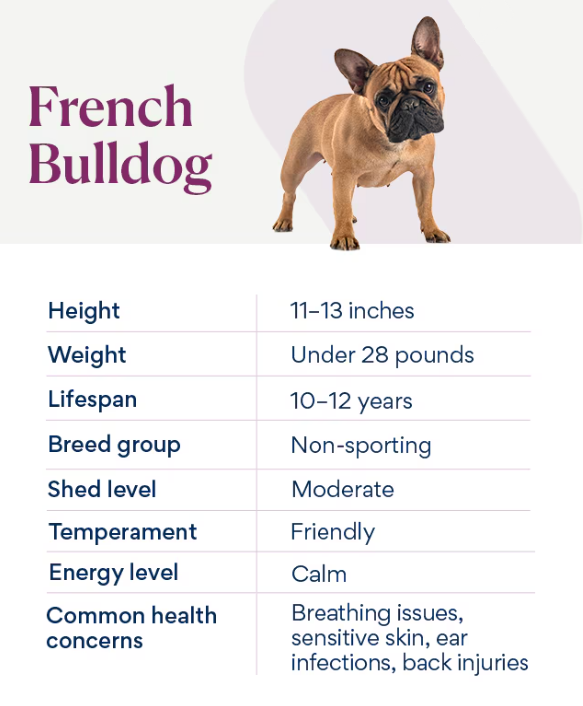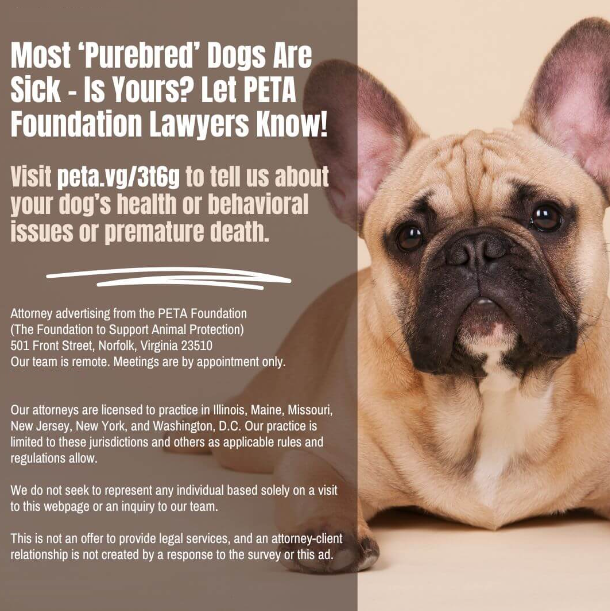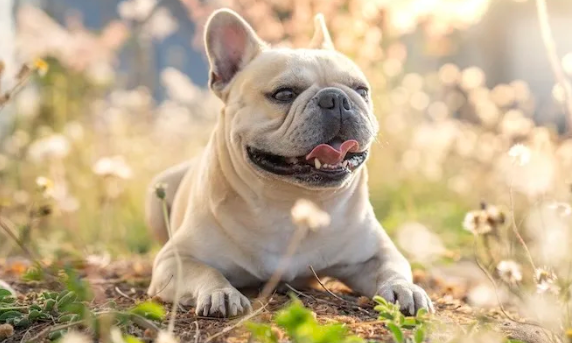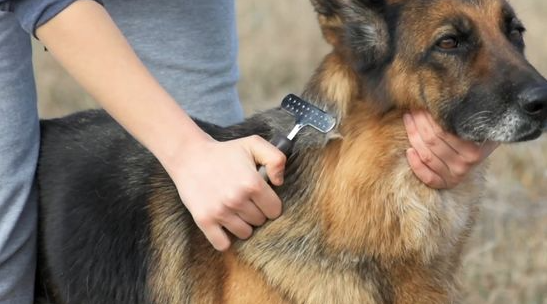Discover everything about French Bulldogs, including their history, personality, care tips, and training advice. Learn how to care for your Frenchie.
Table of Contant :
French Bulldogs, or “Frenchies,” are one of the most popular dog breeds in the world today. Their charming personalities, distinct appearance, and friendly nature make them a favorite among dog lovers. Whether you’re thinking of adopting a French Bulldog or already have one, this guide will provide you with all the information you need to care for your pet properly.
What Makes French Bulldogs Special?
French Bulldogs are small yet sturdy dogs, known for their muscular build, bat-like ears, and flat faces. They have a unique charm and are often described as being affectionate, playful, and intelligent. French Bulldogs are ideal companions for people living in apartments or houses, as they adapt well to different living environments and have relatively low exercise needs.

Short History of French Bulldogs
French Bulldogs trace their origins back to the early 1800s in England, where lace workers kept smaller Bulldogs as companions. When these workers moved to France during the Industrial Revolution, they brought their dogs with them, where the breed continued to evolve into what we now know as the French Bulldog. Over time, French became popular among Parisians and soon captured the hearts of people all over the world.
Physical Characteristics
French Bulldogs have a distinct appearance that sets them apart from other breeds. Here are some key physical traits:

- Size: Small and compact, typically weighing between 16-28 pounds.
- Head: Their heads are large and square-shaped with a flat face.
- Ears: One of the most notable features of French Bulldogs is their “bat ears,” which stand erect.
- Body: Despite their small size, French Bulldogs have a muscular and sturdy body.
- Coat: Their coat is short and smooth, and they come in a variety of colors such as fawn, brindle, white, or a mix of these.
Personality and Temperament
French Bulldogs are known for their affectionate and friendly personalities. They thrive on human companionship and are happiest when they’re close to their owners. Here’s what makes Frenchies stand out:

- Affectionate: French Bulldogs love to snuggle and are incredibly loyal to their family members.
- Playful: While they don’t require a lot of exercise, they enjoy playtime and can be quite entertaining.
- Alert: French Bulldogs make great watchdogs due to their alert nature, but they’re not excessive barkers.
- Sociable: They are generally friendly towards other animals and strangers, making them great for households with multiple pets or frequent visitors.
Health Considerations for French Bulldogs
French Bulldogs are generally healthy, but like all breeds, they are prone to specific health issues. Due to their unique physical traits, Frenchies are especially prone to the following health conditions:

1. Brachycephalic Syndrome
French Bulldogs have flat faces, which can lead to breathing difficulties. Brachycephalic Syndrome occurs due to their shortened airway, which can cause snoring, difficulty breathing, and even overheating.
2. Hip Dysplasia
Though more common in larger breeds, hip dysplasia can affect French Bulldogs. It’s a genetic condition where the hip joint doesn’t fit properly, causing discomfort and mobility issues over time.
3. Skin Allergies
Frenchies are susceptible to skin allergies, which can result in itching, redness, and infections. Regular grooming and using hypoallergenic shampoos can help prevent this.
4. Ear Infections
With their large, open ears, French Bulldogs are prone to ear infections. Regular ear cleaning is essential to keep them free from wax build-up and debris.
5. Obesity
Due to their love for food and relatively low exercise needs, French Bulldogs are at risk of becoming overweight. A balanced diet and regular walks are crucial in maintaining their health.
Caring for Your French Bulldog
1. Feeding and Nutrition
A French Bulldog’s diet should be balanced, including high-quality dog food rich in protein, vitamins, and minerals. Overfeeding can lead to obesity, so it’s essential to measure their food portions and avoid giving them too many treats. Consult your veterinarian for specific feeding guidelines tailored to your dog’s age, weight, and activity level.
2. Grooming Needs
French Bulldogs have short coats that shed moderately, requiring regular brushing to remove loose hair. Additionally, their facial folds should be cleaned regularly to prevent infections. Here’s a quick grooming checklist:
- Brushing: Brush their coat at least once a week.
- Bathing: Bathe them every 4-6 weeks, or as needed.
- Nail trimming: Trim their nails once a month to prevent overgrowth.
- Ear cleaning: Clean their ears regularly to prevent infections.
3. Exercise Requirements
Although French Bulldogs have a lower energy level than some other breeds, they still need regular exercise to stay healthy. Short walks, playtime in the yard, or indoor games can help keep them fit without overexerting them. Be mindful of extreme temperatures, as French Bulldogs can easily overheat due to their breathing difficulties.
4. Training Your French Bulldog
French Bulldogs are intelligent, but they can be a bit stubborn. Early socialization and obedience training are essential to ensure they grow into well-mannered pets. Here are some tips for training:
- Positive reinforcement: Use treats, praise, and affection to encourage good behavior.
- Consistency: Be consistent with commands and routines to avoid confusion.
- Short sessions: Keep training sessions short, around 10-15 minutes, as Frenchies can lose interest quickly.
Common Behavioral Issues
French Bulldogs are generally well-behaved, but they may exhibit some behavioral issues if not properly trained. Here are some common problems and tips on how to address them:

1. Separation Anxiety
French Bulldogs form strong bonds with their owners, which can lead to separation anxiety when left alone for long periods. To prevent this, try the following:
- Gradual desensitization: Start by leaving your dog alone for short periods and gradually increase the time.
- Provide toys: Offer interactive toys or puzzles to keep them occupied when you’re away.
- Create a safe space: Designate a comfortable area where they can relax when you’re not around.
2. Stubbornness
French Bulldogs can be a bit headstrong, especially during training. To combat this:
- Stay patient: Frenchies respond best to patience and persistence.
- Reward good behavior: Use treats or praise to reinforce positive actions.
3. Excessive Barking
While French Bulldogs aren’t known for being excessive barkers, some may bark more than others, especially if they’re anxious or bored. To reduce barking:
- Identify the trigger: Determine what’s causing the barking (e.g., boredom, anxiety).
- Redirect their attention: Engage them with toys or training to distract from barking triggers.
The Importance of Socializing Your dogs
Socialization is crucial for French Bulldogs to develop into well-adjusted pets. Introducing them to different people, animals, and environments from an early age will help them grow into confident and friendly dogs. Here’s how to start socializing your Frenchie:
- Introduce them to new environments: Take them on walks in different areas to expose them to new sights and sounds.
- Meet other dogs: Arrange playdates with other dogs or take them to dog parks.
- Invite visitors: Have friends or family over to help your Frenchie get used to new people.
Are French Bulldogs Good with Children and Other Pets?
French Bulldogs are known for their gentle and patient nature, making them great companions for children. They are typically tolerant of kids and enjoy playing with them. However, it’s always important to supervise interactions between dogs and young children to prevent accidental injuries.
When it comes to other pets, French Bulldogs are generally sociable and can get along well with other animals, especially if they’re raised together. Early socialization is key to ensuring a harmonious household with multiple pets.
How to Choose a French Bulldog Puppy
When selecting a French Bulldog puppy, it’s important to choose a reputable breeder who prioritizes the health and well-being of their dogs. Here are some tips for finding the right puppy:

- Ask for health clearances: A responsible breeder will provide health clearances for the puppy’s parents, proving they’ve been tested for genetic conditions.
- Visit the breeder: Visit the breeder’s facility to ensure the puppies are raised in a clean and caring environment.
- Observe the puppy’s behavior: Look for a puppy that’s friendly, curious, and well-socialized.
Adopting from a rescue or shelter is also an excellent option, as many French Bulldogs are in need of loving homes.
Conclusion
French Bulldogs make fantastic companions for many types of households. Their affectionate nature, adaptability, and playful demeanor make them a popular choice for families, singles, and seniors alike. However, their unique health needs and care requirements mean they are best suited to owners who are willing to provide them with the attention and care they need.




